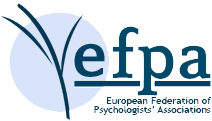EQF
What is the EQF?
The European Qualifications Framework (EQF) is a European-wide qualifications framework which provides an over-arching framework for the qualifications of different EU members. In a way, it is a translation of different national qualifications which makes qualifications in different EU countries easier to understand.
The EQF was set up in 2008 and later revised in 2017. Its revision has kept the core objectives of creating transparency and mutual trust in the landscape of qualifications in Europe. Member States committed themselves to further develop the EQF and make it more effective in facilitating the understanding of national, international and third-country qualifications by employers, workers and learners
The EQF levels
The EQF is a lifelong learning framework which covers all types of qualifications ranging from those acquired at the end of compulsory education (level 1) to the highest qualifications such as the Doctorate (level 8). It includes academic, vocational and professional qualifications.
Description of the eight EQF levels here
How does the EQF relate to the Bologna process?
The Bologna Process adopted three cycles of higher education qualifications: the first cycle (Bachelor), the second cycle (Master’s) and the third cycle (Doctorate). These map onto the EQF. The Bachelor degree is level 6, the Masters degree level 7, the Doctorate degree level 8.
The 8 levels of the EQF have specified descriptors of knowledge, skills and responsibility which create a transparent and comprehensive guidance for educational programmes. (link to the EQF levels)
How does the EQF link to the EuroPsy?
The EQF links to the EuroPsy indirectly through the Bologna model of Bachelor and Master degrees. This has been elaborated in the document
Tuning Educational Structures in Europe
Tuning Educational Structures in Europe is a university driven project which aims to offer higher education institutions and subject areas a concrete and dynamic approach to implementing the Bologna Process.
The name Tuning is chosen for the Process to reflect the idea that universities do not and should not look for uniformity in their degree programmes or any sort of unified, prescriptive or definitive European curricula but simply look for points of reference, convergence and common understanding.

